Main Menu
Latest Blog Entry
User login
Coach Development: One size does not fit all.
Coach Development Mind Map
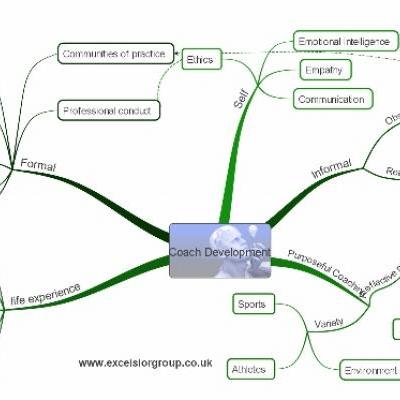
(Full image was sent out in today’s newsletter and is presented in our coaching courses).
Are you a victim of a false dichotomy?
Coach development takes many forms, but I often see and hear a “our way or the highway” approach to working with athletes. This could be well meaning, but it could also be a commercial or vested interest that is trying to defend or justify its existence.
In my development as a strength and conditioning coach I have come across 4 main routes to becoming an “S&C coach”.
Here are some examples:
The Academic.
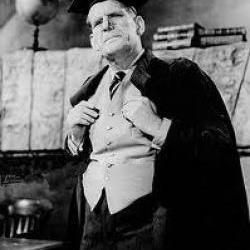 “In order to work with any athlete you must have attended our University course X” or “I have worked with athlete Y” (what that could mean is the profressor supervised an undergraduate dissertation which involved testing a footballer on a treadmill).
“In order to work with any athlete you must have attended our University course X” or “I have worked with athlete Y” (what that could mean is the profressor supervised an undergraduate dissertation which involved testing a footballer on a treadmill).
A sound background of theoretical knowledge is essential in coaching. A rigorous approach to assessing what works and what doesn’t is also essential. Going to University can help that.
You can gain knowledge for free in many ways (see here), Universities are trying to get £30,000 from you, their rankings are based on research published, not on how well an undergraduate is taught.
Knowledge without an idea of how to apply it is not much use in Coaching.
(Disclaimer: I have an MSc in Sports Coaching, I didn’t do an undergraduate degree).
The Ex Athlete
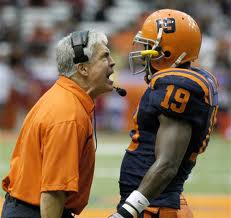 “This worked for me, so it should work for you” or “here’s what we are doing in training today” (which could mean, doing their session as they still prefer to train rarher than coach).
“This worked for me, so it should work for you” or “here’s what we are doing in training today” (which could mean, doing their session as they still prefer to train rarher than coach).
An experience of competing, training and the ups and downs of sporting life is very useful in coaching. This is not formal training, it is part of getting bruised, battered, elated and downright knackered.
However, just doing what you did as an athlete, and applying it to all your sessions is not sound coaching. Worse, newly retired athletes often use the training for their own benefit.
The very best at their sport often do not make good coaches because they did not understand the training principles behind what they did. They could pick things up easily and were highly motivated.
(Disclaimer: I trained in Karate for 16 years, including 3 years on the England squad and competed in National, European and World Championships, amongst other things).
The Ex Forces
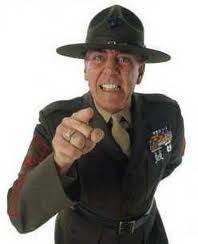 “Stand still, move fast, do 100 press ups because your sock is the wrong colour” or “today we are going to do a team building run of 5 miles” (which could mean, I know it gets people tired, and tired is good).
“Stand still, move fast, do 100 press ups because your sock is the wrong colour” or “today we are going to do a team building run of 5 miles” (which could mean, I know it gets people tired, and tired is good).
The discipline, organisation and work ethic of coaches who have served or are serving in the Military are very useful traits. The experience of working in teams, with minimal facilites and with large groups is excellent.
However, what is important to be trained when preparing 17 year olds for an amphibious assault against an occupied position, is not the same for 13 year old netball girls (although I am not sure which is more scary).
Similarly, being able to perform massive amounts of non specific work is useful in the Military, and doing it when sleep deprived and under stress more so. This is not so relevant for 120kg rugby props.
This should be borne in mind when doing endless circuit training or “beastings”. Getting tired is not the same as getting better.
(Disclaimer: I served in the British Army, and spent 3 months rehabbing an injury at RAF Headley Court which is an excellent facility with superb staff).
The Badge Collector
 “I went on course X and we were told to do this” or “Exercise Y is the only way to develop power” (meaning, I have invested time and money into learning this exercise and I have bought the kit, so now I have to justify that by doing it with everyone!).
“I went on course X and we were told to do this” or “Exercise Y is the only way to develop power” (meaning, I have invested time and money into learning this exercise and I have bought the kit, so now I have to justify that by doing it with everyone!).
Coaching courses that are delivered by “gurus” or “experts” should involve practical coaching. Learning coach theory, or new exericises without actually applying them and learning from your mistakes is questionable.
Having lots of badges, but no sort of context in which to apply them is also not beneficial. Otherwise you will be doing the “Barefoot running with kettlebells followed by some Olympic Lifting sessions” with Equestrians.
It is very easy to learn drills, it is hard to learn the skills on how to apply them and when.
If you have a list of coaching badges, but do not Coach, then how are you applying the knowledge? Wearing a tracksuit with “Coach” on the back, does not mean you can coach.
You have to get your hands dirty and make mistakes at some point. Then you have a point of reference to work from and improve.
(Disclaimer: I have attended many different courses and workshops over the years, and I usally try the stuff out on myself first. I have made a Gazillion mistakes. I deliver Level 1 and Level 2 coaching S&C courses, they involve self reflection, practical work and theoretical learning).
Summary
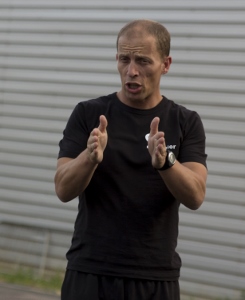 Coach development is far from a simple linear pathway. It involves many different aspects of both formal and informal learning, as well as life experience.
Coach development is far from a simple linear pathway. It involves many different aspects of both formal and informal learning, as well as life experience.
Anyone with young kids has a different perspective on the problems faced by parents, than those who don’t.
Suffering from setbacks in life or sport gives you a chance to learn and develop.
Have a look at your own coaching and background, if you see some holes or gaps, then look to fill them.
Are you a one dimensional Coach (or Human Being)?
Further reading:
Client Testimonials
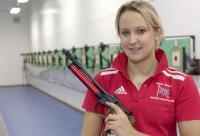 Louise Helyer – Modern Pentathlete, Commonwealth Games Silver Medallist Epee
Louise Helyer – Modern Pentathlete, Commonwealth Games Silver Medallist Epee
I have been working with James since September 2009, with a history of becoming injured in winter months our main goal was to over come this and help my core/hip area to become more stable thus enabling me to run at my full potential. Not only have I made it through the winter months without gaining the usual knee injuries I have also improved my performance to currently become one of the top ranked athletes.
More


Comments
[…] with a review of strengths, weaknesses, and how to continue their development based around our Coach Development mind map. It was good to get some feedback on the course and what subjects the coaches would like covered on […]
[…] What experience do I need to be an S&C coach? […]
[…] wrap up looked at opportunities for Continued Professional Development (CPD) and lessons learnt from each other. A few points came up from Andy and […]
[…] I have to be patient and realise that young people are a product of their environment and are just starting out on their coaching pathway. […]